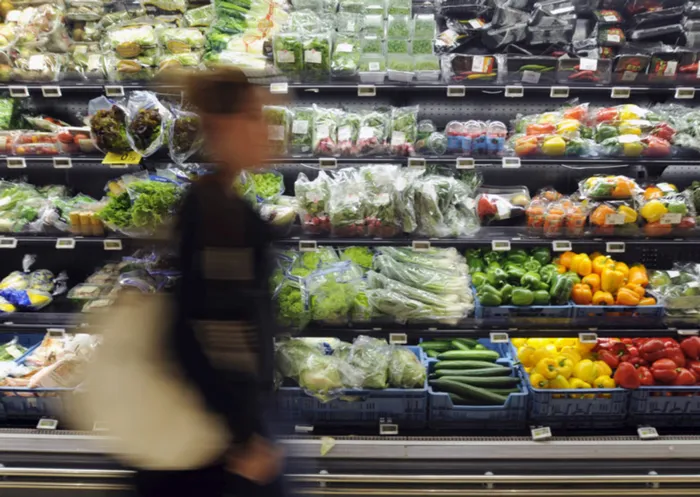SA drought hits on all sides

File picture: Eric Vidal, Reuters File picture: Eric Vidal, Reuters
Durban - The market price for cauliflower has increased by as much as 10 times, tomatoes by four and potatoes have almost doubled in the past few months as the impact of the drought starts to show in food shortages and prices, say fresh food producers.
Struggling commercial farmers are closing shop and others are downsizing their operations and staff to keep afloat.
Anton Louw, a farmer in the Hluhluwe area, said the food shortage was already starting to impact on prices.
“The price of vegetables is going through the roof. The market value of a cauliflower that you would pay about R5 for is now R50, 10 times its value. Even tomatoes, that are planted by everyone, are going up because there is a shortage. A kilo used to sell for R5 and now it’s around R20,” he said.
Grant Paolo a fresh produce dealer, said many vegetables had increased dramatically. He said the price of maize was expected to rocket by about 25% as it had to be imported.
The demand for potatoes is high and there is low yield so the price is going up. If you were paying R20 per 7kg you are now likely to be paying R35, he said.
The KwaZulu-Natal farmers’ union, Kwanalu warned that the situation was an impending disaster for the agricultural sector and the province. It said some farmers were unable to cope and were closing down. This would see further rises in prices and unemployment.
“I do not have the actual numbers, but it’s more than a handful of farms that have gone under,” said Kwanalu’s chief executive, Sandy la Marque.
The number of commercial farmers has been declining for years. Only a few thousand remain. Some have retired, others – frustrated by the land reform process – have sought better opportunities in other African countries.
The drought, KwaZulu-Natal’s worst in 20 years, has exacerbated the problem.
Information from the Stats South Africa website shows that KwaZulu-Natal, the Eastern Cape and Limpopo are responsible for two thirds of agricultural activities in the country, with KwaZulu-Natal leading with 24.4% of the total.
Catastrophic
The double impact of job losses and the decline in food production would therefore be catastrophic for the province and the country.
“There are implications for food security. We are already seeing prices starting to increase. Maize prices have almost doubled and that is affecting the price of maize meal, the staple diet of rural people,” said La Marque.
She said there were already reports of people going hungry.
“We are hearing reports of people cutting back on their consumption ... if people were eating two times a day, they are now cutting back to just one meal a day.”
Last month, the provincial government released about R114 million to try to shore up the damage to the sector. The money was split for various projects and an estimated R60 million went to providing farmers with emergency supplies, including animal feed.
“The money was depleted within two days and the suppliers were overwhelmed by those coming for supplies,” she said.
Most commercial farmers benefited little or not at all.
Thubelihle Zondi, the provincial chairman of the African Farmers Association of South Africa, said the interventions were temporary.
“The money for the supplies, especially in the uMsunduzi area (Pietermaritzburg), quickly ran out and some people did not get anything. Animal feed that some were getting was the equivalent of one month. By the end of the month, there would be nothing again.”
Zondi said many of their members whom they were introducing to commercial farming faced disaster.
“There is one woman in Nongoma whom we were educating to trade in cattle. She had a herd of 50, but all of them are now dead.
“I visited her recently and found all the carcasses in her yard.”
Mervyn Abrahams of Pacsa, a Pietermaritzburg- based organisation that monitors food prices, said more increases were on the way.
Their food barometer showed that a 25kg bag of maize meal had increased by almost R10 between September and October.
Lelethu Manentsa of the Department of Agriculture said only about R18 million of the R60 million had been spent on the farming supplies by Thursday last week. More would be spent as the programme continued.
THE MERCURY